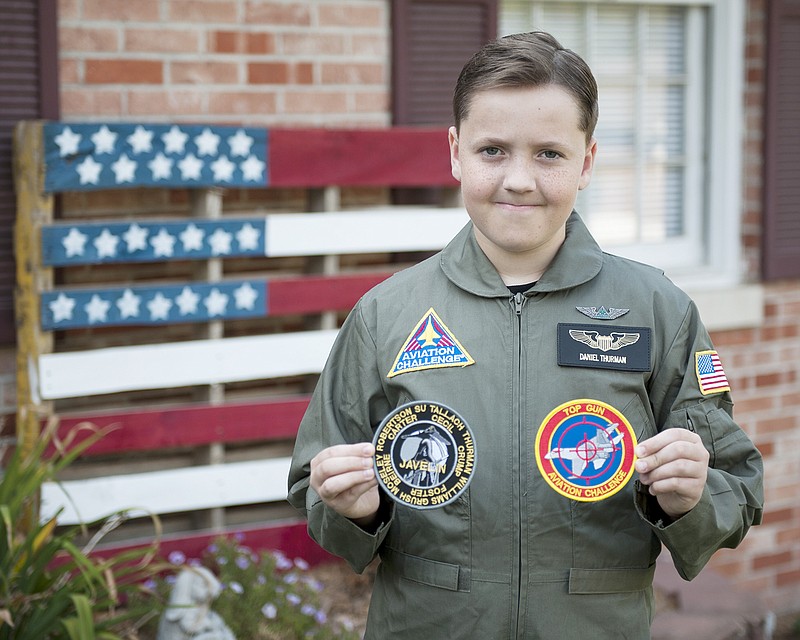Daniel Thurman flew a fighter jet and a drone, made it out of a sinking aircraft, had to try to evade capture and was recognized as the best pilot of his 12-person flight team and one of the top three best pilots of several flight teams - all in less than a week from the time he entered the barracks.
Thurman, of Jefferson City, is 11 years old and will be starting sixth grade at Lewis and Clark Middle School next week.
He did not join the U.S. Air Force this summer, but he did attend the Aviation Challenge Mach I at the U.S. Space and Rocket Center in Huntsville, Alabama, last month.
The week-long educational program features different levels for different age groups, and puts students such as Thurman in a military-like environment that uses hands-on activities to promote science, technology, engineering and math, as well as teamwork, leadership and problem-solving, according to a Space and Rocket Center news release.
Thurman said that after the first day, he and his camp mates flew in fighter jet simulators part of every day. They crawled into mock cockpits, started up their planes and eventually ran dogfight simulations - and also "had to land it perfectly and not go off of a runway."
He said he didn't crash his plane, but he did experience having to swim out of a mock sinking aircraft fuselage held up by a crane over a pond - "It was scary, at first." He and his camp mates wore life jackets and helmets, and learned water survival skills.
There were land survival skills to master, too.
"We would crawl around in the woods and there would be these guards we had to take out," Thurman said.
He did get caught by the guards, but his point scores as an ace in the simulator meant he was one of only three top camp participants to get to fly drones. He didn't remember what kind of drones they were, but his mom, Tammie, said "expensive is what they were told."
The aviation challenge camp is not cheap, either, but Daniel's paternal grandfather, Don, paid for him to go, as he's done for Daniel's 17-year-old brother.
Kevin Thurman, Daniel's dad and Tammie's husband, said his father worked for NASA for approximately 40 years as a civilian after he left the U.S. Army's missile command and joined the U.S. space agency the same year - 1962 - that President John F. Kennedy announced that "We choose to go to the moon in this decade and do the other things, not because they are easy, but because they are hard, because that goal will serve to organize and measure the best of our energies and skills, because that challenge is one that we are willing to accept, one we are unwilling to postpone, and one which we intend to win, and the others, too."
"In grade school, most of your friends' dads also worked out there," Kevin said of what growing up next to NASA in Huntsville meant - he remembers there were lots of parents in lots of different uniforms at school pep rallies.
Huntsville is where NASA has its George C. Marshall Space Flight Center - the place where the space agency developed the rocket technology used to get humans to set foot on the moon for the first time in July 1969.
Daniel wants to follow in his dad's footsteps a bit - not really interested in becoming a pilot or astronaut someday.
Kevin is a programmer with the Missouri Highway Patrol, and Daniel said he's thinking about becoming a police officer.
For now, Daniel does have a uniform of his own that he got to take home from the aviation challenge camp, along with his own flight suit and a set of dog tags. His favorite patch that has yet to be sewed on is the "Team Javelin" patch that has the names of his fellow flight team camp mates and him on it.
More information about the aviation camps for students ages 9-18 at the U.S. Space and Rocket Center in Huntsville - which is the official visitor center for the Marshall Space Flight Center - can be found at spacecamp.com/aviation. The center also offers space camps for students, adults and teachers, and robotics and cyber camps.

